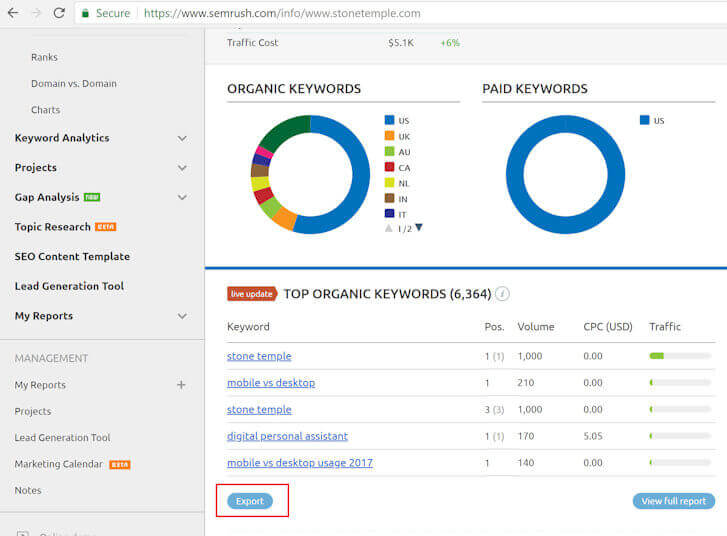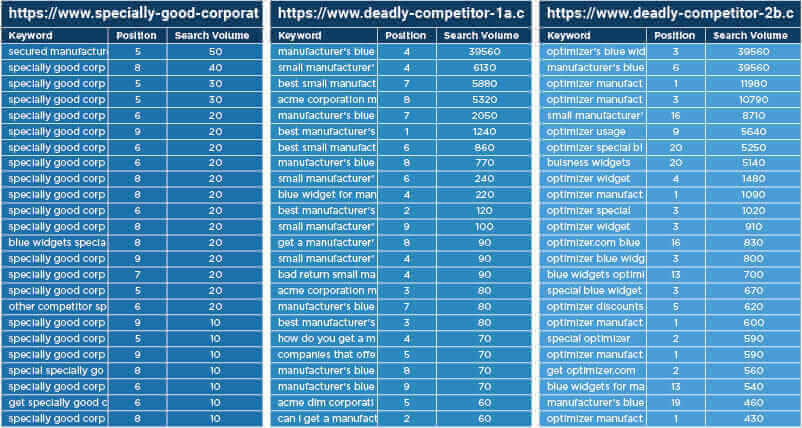In some ways, getting ranked in Google search is like being a contestant in our imaginary “Who Is Most Relevant?” game show. It’s often not enough just to build a single great page with the “right answer.” You have to show Google that your site is relevant for the topic in which you want to rank.
In this episode of our popular Here’s Why digital marketing video series, Perficient Digital’s Eric Enge explains one way to assess whether or not Google is likely to see your site as relevant for a topic, and how to calculate your chances that you might rank well for a keyword from that topic.
Don’t miss a single episode of Here’s Why. Click the subscribe button below to be notified via email each time a new video is published. Over a half million views on YouTube!
Transcript
Mark: Okay, Eric. Let me throw a hypothetical at you. But it’s a situation I know happens all the time.
Eric: Okay, I’m ready.
Mark: Say I decide I want to rank for a certain keyword, and I’ve never before shown up anywhere high in search for that keyword. So I create a new page targeted at that keyword. Should I expect now to have a chance at ranking for it?
Eric: As I think you already suspect, it’s not really quite that simple. Google has to decide if your site is worth ranking that keyword. And just having a new page might not be enough.
Mark: Well what does it take then?
Eric: It takes a careful analysis of what you and your competitors already rank for.
First step is to pull data on the keywords ranking well for your own site. Here’s what that looks like in SEMrush:

But you could use any of the tools that provide you this kind of keyword data. Now let’s say you want to rank for the keyword “manufacturer’s blue widgets.” You’ll want to pull ranking and search volume for any keywords that you’re already ranking for.
[Tweet “How to tell if you have a shot at ranking for a competitive keyword.”]
Mark: And then see how I’m stacking up against my competition?
Eric: Yes, that’s right. And as you see below, the picture doesn’t look good for you. That’s your site on the left, and your top two competitors right next to it.

Mark: Well ouch. I mean, they’re both already on page one for my “manufacturer’s blue widgets” target term, and they’re ranking well for lots of related terms.
Eric: Right, while your site doesn’t rank at all for your target. But even worse, the related words that do rank for you only rank when searchers include your brand name with them.
Mark: So I don’t have much chance here, do I?
Eric: Not as things stand, but it’s possible for you to turn this around.
How to Rank for a Competitive Keyword
Mark: How?
Eric: Well, it won’t be easy or fast, but you need to
- Set out a dedicated content plan to create lots of high-quality content around all different aspects of “manufacturer’s blue widgets.”
- You’d also want to work hard to win opportunities for relevant, legitimate links to those pages.
- And it wouldn’t hurt to get your audience talking about you around that topic on social media, forums, and elsewhere.
The goal of all that is to get Google to see your site as legitimately relevant for “manufacturer’s blue widgets.” If you begin to rank for a number of blue widget non-branded terms, then over time it will become easier to rank for more. But I have to emphasize “over time.” With how your competition is doing, this won’t be a quick and easy fix.
[Tweet “How to rank for a competitive keyword when your site has little-to-no authority for the topic.”]
Mark: So what if I’m already pretty relevant for that general topic, but I’m still not ranking for new target keywords. How do I win that?
Eric: I explained the strategy for that as well as some tips for doing cost versus opportunity assessment for these types of situations in my column for Search Engine Land.
Don’t miss a single episode of Here’s Why. Click the subscribe button below to be notified via email each time a new video is published.
See all of our Here’s Why Videos | Subscribe to our YouTube Channel


It was confusing and challenging for me to understand “keyword relevancy, particularly how Google calculates it and how to fix it”.
Especially challenging when trying to rank for a competitive keyword or site has little to no authority.